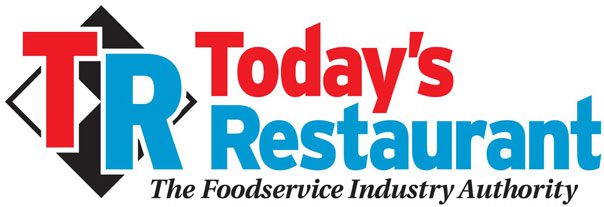
How Voluntary Benefits Can Help Employers Fight the Great Resignation
Restaurant Staffing Woes Continue
 Heather Garbers
Heather Garbers
By whatever name – the Great Resignation, the Big Quit or the Great Reshuffle – today’s unprecedented jobs market is causing employers in nearly every business sector considerable angst.
But the pain may be greatest in the restaurant industry, particularly in states like Florida, with weather that bolsters the tourist economy, lack of personal income taxes and a large population of retirees, many of them privileged. Employees are leaving and not coming back: In a single month last year, 1 million of the 4.5 million Americans who left their jobs were restaurant and hotel workers.
 Stefan Burkey
Stefan Burkey
Pay is one issue. One retiree in Florida’s The Villages retirement community suggested: “At $20 an hour you will get people to work.” Maybe. But one Naples restaurant manager said many employees can’t afford to live in the area, despite pay of $14 or $15 for jobs requiring minimal skills. And higher pay can’t compensate for the stress of long hours under pressure from demanding and sometimes abusive customers.
Clearly, the dissatisfaction goes way beyond just pay: 85% of workers globally are unhappy with how their careers are supported; 87% say employers can start by really listening to their needs.
As the industry searches for solutions, voluntary benefits should head the list. The wealth of options are ideal for dealing with specific causes of employee dissatisfaction, while also giving workers a reason to stay: 75% said they made the difference, versus 68% in 2020. Better still, they no-cost or low-cost to employers.
Voluntary benefits for today’s needs
There are myriad options for voluntary benefits to fit every need. Some workers may be delighted to have access to pet insurance. Others, legal services. The mix of voluntary benefits being offered should revolve around a keen understanding of the employee demographics and the offerings that will make a real difference in the pressures in their lives.
The mix may shift as circumstances change priorities and needs.
Today, for example, we are facing a mental health epidemic after the upheavals caused by the pandemic. That pushes the mental health services (think Employee Assistance Programs) to the top of the list. For a population of employees who may traditionally go without health insurance or only have access to plans with higher deductibles, options for affordable care are also important. Benefits such as minimum essential coverage plans, telemedicine and discount RX programs can go a long way.
But equally important are benefits that contribute to the root causes of emotional stress. Employees’ financial health is a big concern, so benefits that help are popular and useful. One study found 80% of employees want such benefits, with access to purchasing programs, low cost loans and debt refinancing topping their lists.
Insurance products outside of healthcare have an important place, too, but better education as to their value and impact is needed. What employee isn’t going to be happy to receive a sizable check through a critical illness policy to help cover expenses during cancer treatment?
It takes a strategic approach to do voluntary benefits right
Voluntary benefits can make a big difference in recruiting and retaining restaurant employees. But thought and planning must be behind their offering. Key considerations include:
- One size still does not fit all.Employers need to understand their people, where they are at (not just in their life journeys but their work journeys) and their needs. Standard demographics and generational factors can suggest needs and concerns, but a deeper dive into where they are at professionally can suggest other areas to explore as well as their relationship with benefits generally.
- Determine goals, their influence over strategies, and measure to manage. HR may think a particular roster of voluntary benefits is a good idea. But how will it move the needle on retention and recruitment? What will the impact be? What measurements will be put in place to ensure the right mix of benefits are doing the job?
- Educate, educate, educate.HR must educate the workforce on a variety of fronts for voluntary benefits to make a difference. It’s not just a matter of telling people the benefits are available. It’s sharing how to access them, and helping them overcome individual sensitivities in terms of costs or need. It’s also ensuring people know why these benefits meet a need. Education can’t be a one-and-done matter. It must be consistent and over time.
No one wants to feel like they are working for a machine. They want an employer that is there for them, will grow with them and take care of them over time. Demonstrate that with honesty and transparency, and engagement and retention will almost be automatic.
About the authors
Heather Garbers, CVBS, is Vice President of Voluntary Benefits and Technology for Hub International, where she is responsible for driving voluntary benefits sales and strategy. She is also responsible for partnering with clients to build optimal enrollment and communications solutions that enhance employee understanding of and engagement in voluntary plan options.
Heather earned a Certified Voluntary Benefit Specialist (CVBS) designation from the Voluntary Benefits Association, and is a member of its National Advisory Board. She also is a recipient of Employee Benefit News’ 2015 Voluntary Advisor of the Year award, and was named one of the “15 Women in Insurance You Need to Know” by LifeHealthPro in 2016.
Stefan Burkey is the hospitality practice leader for HUB International Florida. In this role, he oversees insurance placement solutions for owners, developers, and operators from limited-service hotels to full-scale resorts. Stefan and his team clearly understand the financial needs and exposures associated with the hospitality industry, and their singular focus has generated profound market knowledge and significant buying power for HUB clients throughout Florida and the U.S.
Stefan has more than 20 years of experience as an insurance professional focused on designing insurance and risk reduction programs for agents across the United States. Before joining HUB Florida in 2019, Stefan was a Lloyd’s of London cover holder underwriting hospitality risk and handling reinsurance placement for both property and liability programs where he served as CEO of Insurance Programs of America.
Read more great articles at www.trnusa.com/blog





Recent Comments